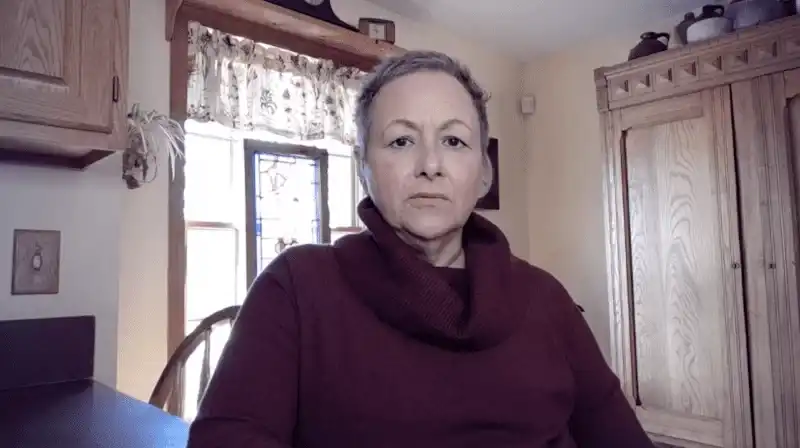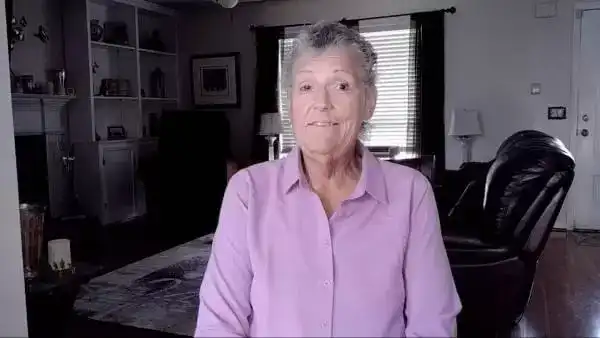Wellness Resources for Anyone Living with Small Cell Lung Cancer
Living with small cell lung cancer (SCLC) can be physically and emotionally challenging for patients and their loved ones. From receiving a diagnosis to navigating the ins and outs of treatment and planning ahead, it’s natural to have questions and concerns at various stages of the cancer experience. “I needed to know that there was someone there when I had questions about how I was feeling,” recalled Annette, a mother and grandmother who has been living with SCLC for close to three years. “Someone who could tell me about how my body was reacting and was going to give me positive reinforcement.” Fortunately, there are plenty of resources available to support your health and wellness. In addition to regular check-ins and conversations with your healthcare team, the following tools can help you manage your treatment goals, plan for the future and connect with others who have been in your shoes.
Find a Place Where You “Belong”
“I really didn't have people close to me that were willing to have these deep conversations. But fortunately, there are a lot of outside sources that offer a space to have them,” said Nina, who has been living with SCLC for seven years. Whether you have a few or many trusted people in your corner during this time, there are resources available to discuss your feelings about SCLC outside of your family and friends. To improve the quality of life and care for those living with lung cancer, the GO2 Foundation for Lung Cancer and LUNGevity have online and telephone support groups.
Connect with Counseling
Coping with an SCLC diagnosis can feel overwhelming, and there may be other points along the treatment journey when a patient needs assistance. Fortunately, no one has to manage their cancer on their own. “It's very important for people to feel they're not alone when they have small cell lung cancer,” said Nina. There are several options to consider for personal, couple or family counseling. Some people find talking with a minister or pastor to be helpful. Finding a professional mental health counselor or therapist in your community can also be helpful. You can consider asking family and friends or your health care team for recommendations. Many cancer centers also provide counseling services that may be provided short-term free of charge or covered by your insurance. Ask your doctor, nurse or oncology social worker for information about counseling services through or near your treatment center. Check with your insurance company about mental health coverage as there may be a list of therapists in your community that are covered by your insurance. In some communities, there are free cancer support programs and services through organizations like the Cancer Support Community, Gilda’s Club and other organizations across the country. To get help finding professional counseling and other support services in your area, online or by phone, contact CancerCare’s national Hopeline at 1-800-813-4673 or the Cancer Support Community Helpline at 1-888-793-9355.
Understand Unique Challenges
Part of living with a difficult-to-treat cancer like SCLC means learning to adapt and adjust to a range of unique situations. Patient advocacy organizations like LUNGevity, GO2 Foundation for Lung Cancer, Lung Cancer Foundation of America and CancerCare understand the challenges people living with SCLC and their loved ones face and provide resources for insights into what to expect from treatment, the importance of certain lifestyle changes and post-treatment programs to support survivorship. LUNGevity recognizes that cancer therapies can take a physical and mental toll on patients being treated for lung cancer. On its “Managing Treatment Side Effects” page, the organization addresses these challenges head-on, including tips to manage side effects.1 LUNGevity also invites patients, caregivers, researchers and other people touched by lung cancer to share firsthand tips and thoughts from their experiences. For example, the LUNGevity blog page highlights a variety of topics including important information about diet and nutrition, as well as how to cope with certain symptoms of cancer treatment, among many others.2 Additional resources, like the “Managing Your Breathing” page, provide practical tips for living with lung cancer after treatment.3
Hear from Others Who Have Been There
Sometimes it helps to hear from others who have experienced similar challenges that you are going through. To raise awareness and challenge public perceptions about what it’s like to live with lung cancer, the Lung Cancer Foundation of America features a series of inspirational survivor stories, as well as the Hope with Answers Living with Lung Cancer podcast and videos.4 These resources share perspectives from people living with SCLC. Patients can browse and even submit their own stories to feel a sense of support within the SCLC community. “Have the best support system you can find,” said Kim, who lived with SCLC for five years. “Have a positive attitude. It helps you every day. It helps you get up in the morning and get you through your day. Don’t worry that you are alone. You have people out there who want to talk to you.”
- LUNGevity Foundation. Managing treatment side effects. https://www.lungevity.org/for-patients-caregivers/survivor-resource-center/managing-treatment-side-effects. Accessed December 5, 2022.
- LUNGevity Foundation. LUNGevity blogs (page 1). https://www.lungevity.org/blogs. Accessed December 5, 2022.
- LUNGevity Foundation. Managing your breathing. https://www.lungevity.org/for-patients-caregivers/survivor-resource-center/managing-your-breathing. Accessed December 5, 2022.
- Lung Cancer Foundation of America. Lung cancer survivors stories. https://lcfamerica.org/lung-cancer-info/survivors/. Accessed December 5, 2022.



